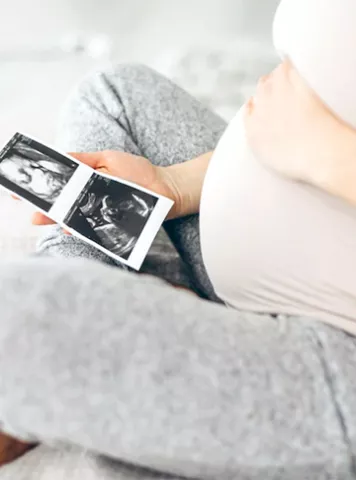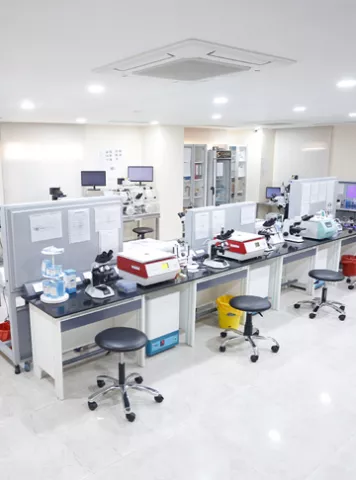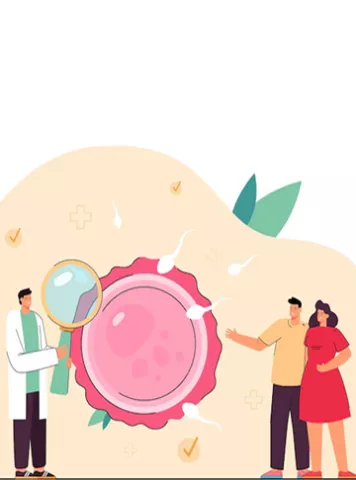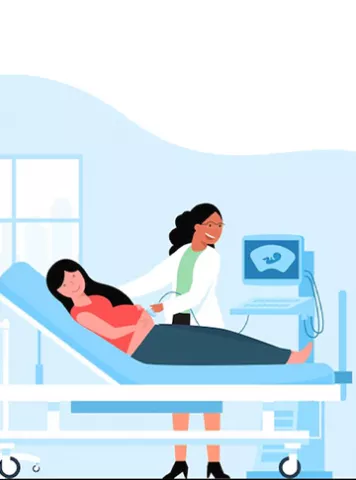In vitro fertilization is one of the most advanced techniques in the field of infertility. Although success rate of IVF mainly depends on the quality of embryo and endometrium of the uterus, diet has got an important role in a person’s well being and pregnancy outcome. So it is very important to be on a healthy balanced diet with all essential nutrients during IVF treatment. Enjoy your healthy food and be stress free. This will add to the positive energy within you and increase the chances of successful pregnancy outcome. There are lots of myths about what to eat and what not to eat after IVF. There is no one ideal diet which can be recommended to all women going through process of IVF. Every person has different requirements of calories, macro and micronutrients. Along with a well balanced diet, exercises are just as important as they are at any other point of life.
What is the best IVF diet?
The answer is still debatable and many diet plans have been supported and simultaneously refuted by researchers. Still there are some dietary guidelines which are unanimously followed. First and foremost, your diet should center around the whole food concept. A vegan diet should include fruits, vegetables, nuts and whole grains. Those who are non-vegetarian should prefer fish over red meat. Whole food diet is rich in antioxidants and plant proteins, which improve egg health. It also contains adequate amount of good fat with its anti inflammatory benefits.
There are certain nutrients which one must include in their diet.
Folic acid– It is one of the essential nutrients for normal brain and spinal cord development of the baby . Its deficiency can lead to neural tube birth defects in the baby. So adequate intake is necessary during IVF treatment. One should start folic acid supplements 400 mcg daily, from at least 3 months prior to conception. Green leafy vegetables, beans, rice, legumes, asparagus, eggs and citrus fruits are rich source of folic acid.
Iron – The main function of iron in our body is synthesis of hemoglobin, which is necessary for adequate oxygenation and proper function of each and every tissue of the body including reproductive system. Its deficiency causes anemia. Women are especially prone for iron deficiency as they shed blood every month during their periods. Pumpkin seeds, spinach, beet root, carrot, jaggery etc. are rich sources of iron.
Zinc– Zinc is required for balancing hormone levels which is very important for reproductive process. Daily requirement of zinc is 15 mg per day. Food rich in zinc are grains, nuts, dairy products, meat, and potato.
Women can also take both iron and zinc supplements as advised by their physicians.
Healthy fats– Fats serve as energy storage in body which helps in the long IVF journey to boost your energy. Studies have suggested that poly unsaturated fatty acids may improve fertility, oocyte and embryo quality, while trans fats adversely affect fertility by increasing insulin resistance. Sources of healthy fat include fish, walnuts, olive oil, chia seeds, and flaxseed oil. Women should avoid cookies, cakes, frozen pies, snacks, fast food and other baked goods. These all are rich in trans fat which adversely affect pregnancy.
Protein rich food– Proteins are the building blocks of the body, necessary for growth and reproductive function. Daily requirement of protein is 1-2 gm per kg body weight depending upon the physical activity of an individual. Good protein sources for pregnancy include fish, beans, tofu, cheese, milk, nuts, legumes and sprouts. Consumption of red meat and eggs should be in moderation.
Fruits and vegetables– These are important sources of antioxidants which help in detoxifying our body. These are also rich source of many micronutrient as iron, zinc, magnesium, potassium and should always be the part of daily IVF diet . Green leafy vegetables such as spinach and broccoli are excellent source of fiber, iron and antioxidants. Broccoli is also a good source of protein and vitamin c which helps in improving egg quality. Banana is a good source of vitamin B6, regulating the menstrual cycle. Pineapple is rich in manganese, which helps in regulation of reproductive hormones.
Plenty of oral fluids– Water is indispensable for maintaining the hydration of the body. Keep yourself hydrated and drinking minimum eight glasses of water to maintain circulation, metabolism and digestion.
Articles
2022


Guide to infertility treatments Blastocyst Culture And Transfer
6 Sexually Transmitted Diseases (STDs) that can make you infertile!
The relation between STD & Infertility- Besides preventing pregnancy, t...
2022


Guide to infertility treatments Blastocyst Culture And Transfer
What Is The Best Advice After Embryo Transfer
In Vitro Fertilisation, popularly referred as IVF has captured attention since...
2022


Guide to infertility treatments Blastocyst Culture And Transfer
Elective single embryo transfer (eSET): A safe option in IVF
What is Single Embryo transfer or SET? Single embryo transfer (SET)is an el...
2022


Guide to infertility treatments Blastocyst Culture And Transfer
What are the Benefits of Frozen Embryo transfer?
Frozen Embryo Childlessness was considered a social stigma since ages. Mill...
2022


Guide to infertility treatments Blastocyst Culture And Transfer
Quality control (QC) concerning pH, temperature and osmolality in the embryology lab
The efficiency of the embryology lab protocols can be improved by conducting r...
2022


Guide to infertility treatments Blastocyst Culture And Transfer
Do’s and Dont’s Post Embryo Transfer
When a couple undergoes IVF or test tube baby treatment, they are in a turmoil...
2022


Guide to infertility treatments Blastocyst Culture And Transfer
Can Single Embryo Transfer Result in Twins?
As the quote by Josh billing “there are two things in life for which we are ...
2022


Guide to infertility treatments Blastocyst Culture And Transfer
Single or Multiple Embryo Transfer – Necessary Points to Know
Embryo Transfer Even though science can give a lot of options, it is not ne...
2022


Guide to infertility treatments Blastocyst Culture And Transfer
In IVF ICSI, What could cause embryos to stop developing
In IVF ICSI, What could cause embryos to stop developing In IVF /ICSI it is...
Pregnancy Calculator Tools for Confident and Stress-Free Pregnancy Planning
Get quick understanding of your fertility cycle and accordingly make a schedule to track it












